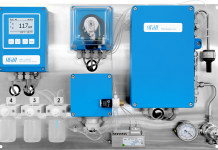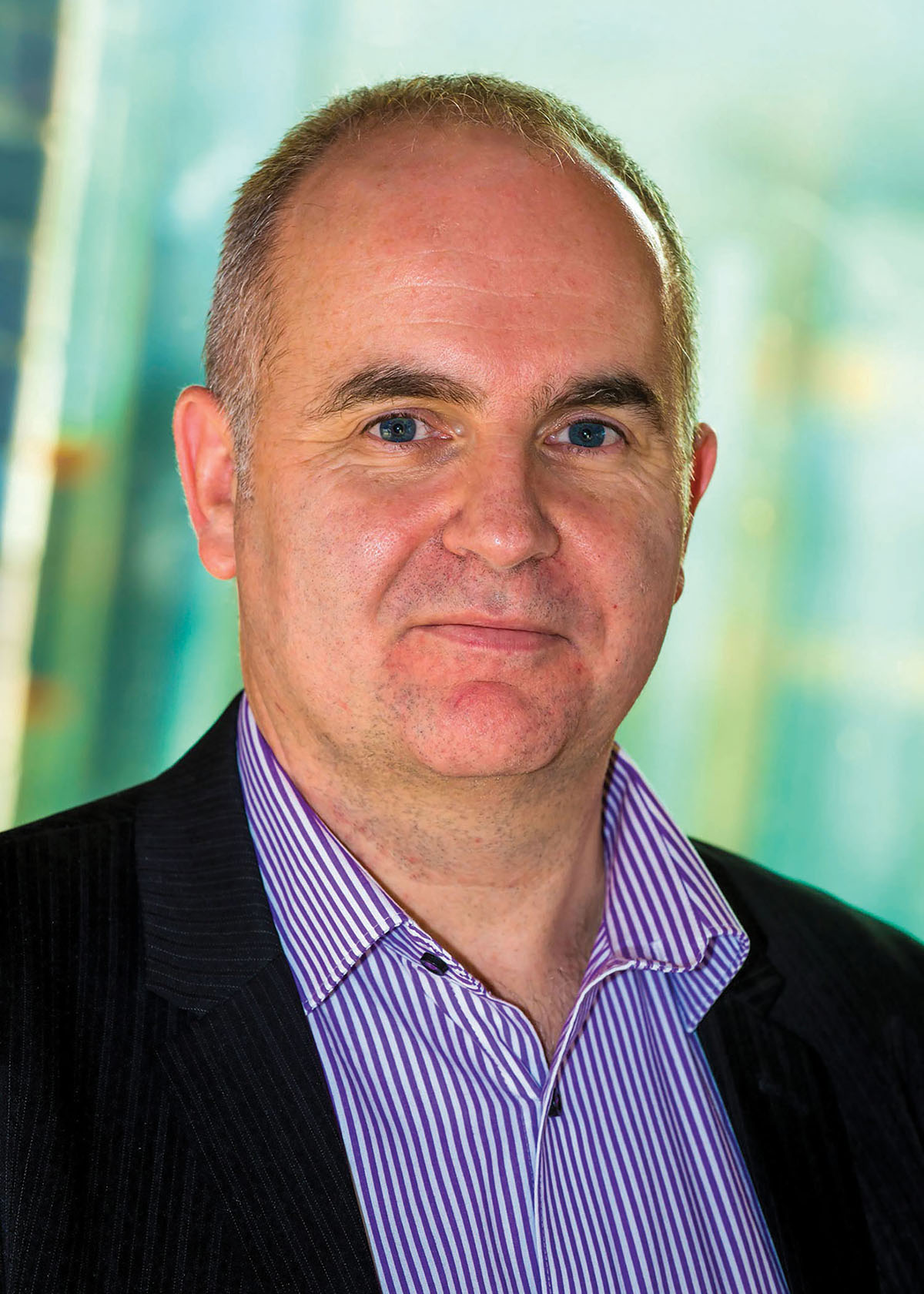Talk to Sean McDonagh and it does not take long for the subject of safeguarding the future of the chemical industry to enter into the conversation.
As the Head of Chemicals for Siemens Industry, based in Manchester, Sean believes strongly that the sector must do more to cope with the twin challenges presented by an ageing workforce and old equipment in desperate need of upgrading.
He says that it is vital that a new generation of workers are brought through to replace the increasing number of long-serving men and women who are retiring and depriving the industry of invaluable experience.
Although that means enthusing children about the chemical industry from primary school age then supporting them as they go through to apprenticeships and university, Sean’s route into the chemical industry was a little more circuitous.
Although he started his career as an apprentice, it was in a very different field to chemistry because he began at sixteen as a helicopter maintenance engineering apprentice with British Airways in the South East.
Having being made redundant due to cutbacks in the company, he then worked in sectors as varied as sewage treatment and printing and imaging technology before moving into sales and gravitating to the chemicals and pharmaceutical sectors.
He joined Siemens twenty five years ago and is responsible for managing a highly-experienced Chemical & Pharmaceutical sales team, with additional responsibility to lead the regional strategic development of the chemical business. As part of his job, he advises on the challenges faced by UK and Irish manufacturers and engineering businesses.
Among the challenges is the impact of an ageing workforce. Sean said: “A few years ago, I became increasingly interested in the idea of safeguarding the future of the industry and a big part of that is ensuring that we have new talent coming through.
“I am seeing our industry lose a lot of experienced people, people who have reached their fifties and are now looking towards retirement, and we have to replace them.
”I saw a figure four years ago that said that, within ten years, 50 % of chemical engineers will have retired so we have to bring in young talent.”
Part of the Siemen’s approach to the challenge is the Curiosity Project, a programme aimed at bringing science, technology, engineering and mathematics (STEM) to life for young people in the UK.
The project provides free STEM-related resources to schools and Sean said: “The company is doing a lot of work with young people, having switched a significant proportion of its sponsorship to encourage them to consider STEM-based careers.
“We have reached 4.5 million children in primary schools, we have five hundred apprentices and 250 graduates. We are trying to get them interested in the subject from a young age and then attract them into the industry as they leave university.”
Sean’s concerns about the future do not stop at ageing staff. He believes it is also vitally important that chemical companies take advantage of the latest technology to upgrade their ageing plants.
As a front runner in the world of automation, Siemens is developing the digitalisation of its own business and the wider industry and the company believes that companies of any size can benefit from Industry 4.0 and the Internet of Things.
These relate to the way technology talks to each other and, for industry, that means creating the ‘smart factory’ in which systems communicate in real time via the Internet rather than being disconnected from each other.
Siemens programmes streamlines processes by connecting hardware and software to not only collect and process data from machines and plants, but to turn that data into competitive advantages. It believes that new technologies provide opportunities to reduce time-to-market, improve flexibility, and increase efficiency and quality as well as allowing companies to individualise products in ways previously considered impossible.
Sean said: “Unlike fast-moving industries like automotives and aerospace, chemical plants tend to be installed and allowed to age.
“It became clear to me that investment was needed to bring them up date and we have done lot of work to bring in new technologies. A lot of our work is promoting the opportunities presented by technologies such as the Cloud.
“The skillsets needed by engineers are changing and our message is that more needs to be done to upgrade ageing plant with the new technologies that are now available.
“Safeguarding the Future is a theme that I am increasingly championing, both in the upgrading of ageing technologies and in the recruitment of the chemical engineers of the future.”
Despite the challenges, Sean is bullish about prospects for the industry. He said: “I am very confident. Siemens hit the majority of its global targets in 2016 and enjoyed a record year.
“It was a challenging year in some ways because we had the downturn in oil and gas, to which we have exposure in certain divisons, but in fact we exceeded our global targets.
“When the Brexit vote happened last year, I expected a knee-jerk reaction but, although there was maybe two or three months when investment was down, it picked up again.
“I think business realised that despite the uncertainty there was still work to be done and we have seen increasing investment, mainly in smaller projects rather that large ones.
“I am confident that investment will continue. Indeed, if you look recent research done into the industry, the results predict a three or four per cent global growth over the next five years, slightly down on initial predictions of five per cent but still growth.
“The opening months of our year have seen business in our Process sector 50% up and I do not think that is all down to price.
“Yes, price is always a driver, and we are seeing project managers seeking the best price, but we are also seeing them looking for quality and reliability of service.”














